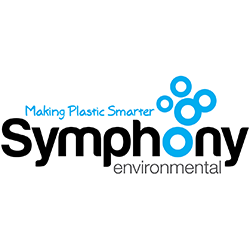Symphony Environmental Technologies Plc (LON:SYM), the global specialists in technologies that make plastic and rubber products smarter, safer and more sustainable, has announced that Symphony Environmental India Pvt Ltd (“Symphony India”), its Indian joint venture with Indorama Corporation has, from a near standing start, reported a significant increase in sales of d2w, the Company’s biodegradable masterbatch technology, for the manufacturing of non-biodegradable plastics into biodegradable and environmentally safe products.
Based on current enquiry and order activity, sales of d2w by Symphony India are expected to increase to levels of over £250,000 per month from early 2023. Further investment is being made by Symphony India to enhance its marketing and sales capability, with five new experienced employees expected to join shortly. This investment is being made now to enable Symphony India to strengthen its position in the Indian market which it estimates could generate over £10 million in annual sales during the course of 2024.
Symphony India has an established high level management team to support a pan-India distribution network. It currently has 16 new hub distributors either in place or in final contact discussions. Hub distributors are large, well-connected third-party companies with strong customer connections, and expert technical and sales personnel. If appointments continue on the current trajectory, more than 30 hub-distributors should be in place before the end of H1-2023.
The increase in sales is being driven by the Plastic Waste Management Rules 2022 (as amended 6.7.22) which permits government-approved biodegradable plastic products to be exempted from restrictions that would ban most plastic film products unless they are above 50-micron thickness, and 120 microns for carrier bags, (which generally means an increase in cost by more than two to three times). Producers and brand owners using certified biodegradable plastic materials will be free from this obligation, thus providing Symphony’s d2w technology with a competitive advantage in a country with a population of c.1.4 billion.
Symphony’s d2w technology has been tested by Intertek India, a Government-approved laboratory, to the ASTM Standard 6954 (an internationally recognised standard for proving biodegradability and non eco-toxicity of plastic products in the open environment), and Symphony India is waiting for official approval that producers using d2w technology will be exempt from the regulations. Customers are however, already placing orders and activity is increasing as stated above.
Michael Laurier, CEO of Symphony, said;
“India is a country whose environment suffers from serious plastic pollution, but plastics are vital for food safety in this populous nation. These progressive Regulations are therefore a welcome step in combatting plastic pollution.
“Symphony India is extremely well placed to help its customers in the region to be compliant with the Regulations by making their plastic products safer and more sustainable, without having to sacrifice the best properties of these materials, nor having to modify their manufacturing process or pay substantially increased costs.
“Symphony India’s ambitious sales development and investment programme is progressing well, and we look forward to updating shareholders on progress in the coming months.”
Arjun Aggarwal, Managing Director of Symphony India, said:
“We are witnessing leading companies implementing Prime-Minister Modi’s sustainability goals for India through the adoption of both innovative and proven technologies to make plastics environmentally friendly. Symphony India was the recipient of a major sustainability award at the Vivekananda Sustainability Summit in New Delhi in April 2022, and is delighted to be at the forefront of this important change.”

